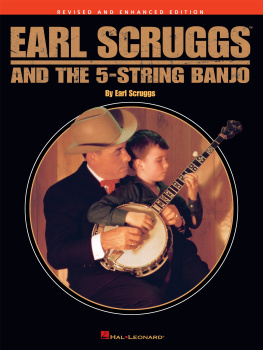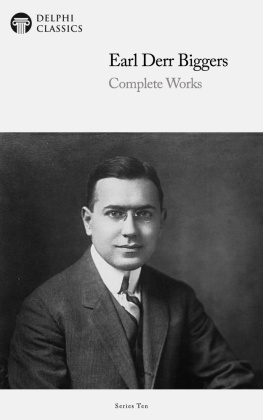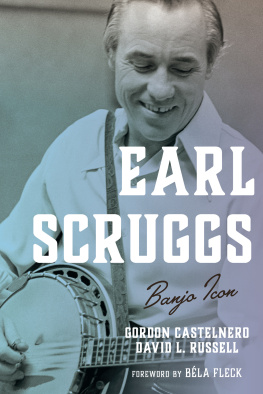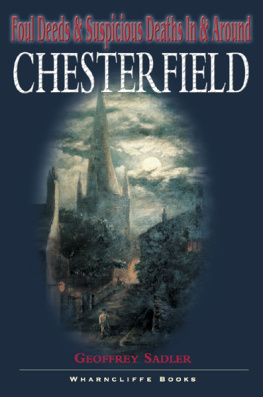The Earl of Chesterfield - Letters to His Son
Here you can read online The Earl of Chesterfield - Letters to His Son full text of the book (entire story) in english for free. Download pdf and epub, get meaning, cover and reviews about this ebook. year: 2021, publisher: Global Grey, genre: Art. Description of the work, (preface) as well as reviews are available. Best literature library LitArk.com created for fans of good reading and offers a wide selection of genres:
Romance novel
Science fiction
Adventure
Detective
Science
History
Home and family
Prose
Art
Politics
Computer
Non-fiction
Religion
Business
Children
Humor
Choose a favorite category and find really read worthwhile books. Enjoy immersion in the world of imagination, feel the emotions of the characters or learn something new for yourself, make an fascinating discovery.
- Book:Letters to His Son
- Author:
- Publisher:Global Grey
- Genre:
- Year:2021
- Rating:3 / 5
- Favourites:Add to favourites
- Your mark:
- 60
- 1
- 2
- 3
- 4
- 5
Letters to His Son: summary, description and annotation
We offer to read an annotation, description, summary or preface (depends on what the author of the book "Letters to His Son" wrote himself). If you haven't found the necessary information about the book — write in the comments, we will try to find it.
Letters to His Son — read online for free the complete book (whole text) full work
Below is the text of the book, divided by pages. System saving the place of the last page read, allows you to conveniently read the book "Letters to His Son" online for free, without having to search again every time where you left off. Put a bookmark, and you can go to the page where you finished reading at any time.
Font size:
Interval:
Bookmark:
By The Earl of Chesterfield.
This ebook edition was created and published by Global Grey

GlobalGrey 2021
globalgreyebooks.com
The proud Lord Chesterfield would have turned in his grave had he known that he was to go down to posterity as a teacher and preacher of the gospel of not grace, butthe graces, the graces, the graces. Natural gifts, social status, open opportunities, and his ambition, all conspired to destine him for high statesmanship. If anything was lacking in his qualifications, he had the pluck and good sense to work hard and persistently until the deficiency was made up. Something remained lacking, and not all his consummate mastery of arts could conceal that conspicuous want,the want of heart.
Teacher and preacher he assuredly is, and long will be, yet no thanks are his due from a posterity of the common people whom he so sublimely despised. His pious mission was not to raise the level of the multitude, but to lift a single individual upon a pedestal so high that his lowly origin should not betray itself. That individual was his, Lord Chesterfields, illegitimate son, whose inferior blood should be given the true blue hue by concentrating upon him all the externals of aristocratic education.
Never had pupil so devoted, persistent, lavish, and brilliant a guide, philosopher, and friend, for the parental relation was shrewdly merged in these. Never were devotion and uphill struggle against doubts of success more bitterly repaid. Philip Stanhope was born in 1732, when his father was thirty-eight. He absorbed readily enough the solids of the ideal education supplied him, but, by perversity of fate, he cared not a fig for the graces, the graces, the graces, which his father so wisely deemed by far the superior qualities to be cultivated by the budding courtier and statesman. A few years of minor services to his country were rendered, though Chesterfield was breaking his substitute for a heart because his son could not or would not play the superfine gentlemanon the paternal model, and then came the news of his death, when only thirty-six. What was a still greater shock to the lordly father, now deaf, gouty, fretful, and at outs with the world, his informant reported that she had been secretly married for several years to Young Hopeful, and was left penniless with two boys. Lord Chesterfield was above all things a practical philosopher, as hard and as exquisitely rounded and polished as a granite column. He accepted the vanishing of his lifelong dream with the admirable stolidity of a fatalist, and in those last days of his radically artificial life he disclosed a welcome tenderness, a touch of the divine, none the less so for being common duty, shown in the few brief letters to his sons widow and to our boys. This, and his enviable gift of being able to view the downs as well as the ups of life in the consoling humorous light, must modify the sterner judgment so easily passed upon his characteristic inculcation, if not practice, of heartlessness.
The thirteenth-century mother church in the town from which Lord Chesterfields title came has a peculiar steeple, graceful in its lines, but it points askew, from whatever quarter it is seen. The writer of these Letters, which he never dreamed would be published, is the best self-portrayed Gentleman in literature. In everything he was naturally a stylist, perfected by assiduous art, yet the graceful steeple is somehow warped out of the beauty of the perpendicular. His ideal Gentleman is the frigid product of a rigid mechanical drill, with the mien of a posture master, the skin-deep graciousness of a French Marechal, the calculating adventurer who cuts unpretentious worthies to toady to society magnates, who affects the supercilious air of a shallow dandy and cherishes the heart of a frog. True, he repeatedly insists on the obligation of truthfulness in all things, and of, honor in dealing with the world. His Gentleman may; nay, he must, sail with the stream, gamble in moderation if it is the fashion, must stoop to wear ridiculous clothes and ornaments if they are the mode, though despising his weakness all to himself, and no true Gentleman could afford to keep out of the little gallantries which so effectively advertised him as a man of spirit sad charm. Those repeated injunctions of honor are to be the rule, subject to these exceptions, which transcend the common proprieties when the subject is the rising young gentleman of the period and his goal social success. If an undercurrent of shady morality is traceable in this Chesterfieldian philosophy it must, of course, be explained away by the less perfect moral standard of his period as compared with that of our day. Whether this holds strictly true of men may be open to discussion, but his lordships worldly instructions as to the utility of women as stepping-stones to favor in high places are equally at variance with the principles he so impressively inculcates and with modern conceptions of social honor. The externals of good breeding cannot be over-estimated, if honestly come by, nor is it necessary to examine too deeply into the prime motives of those who urge them upon a generation in whose eyes matter is more important than manner. Superficial refinement is better than none, but the Chesterfield pulpit cannot afford to shirk the duty of proclaiming loud and far that the only courtesy worthy of respect is that politesse de coeur, the politeness of the heart, which finds expression in consideration for others as the ruling principle of conduct. This militates to some extent against the assumption of fine airs without the backing of fine behavior, and if it tends to discourage the effort to use others for selfish ends, it nevertheless pays better in the long run.
Chesterfields frankness in so many confessions of sharp practice almost merits his canonization as a minor saint of society. Dr. Johnson has indeed placed him on a Simeon Stylites pillar, an immortality of penance from which no good member of the writers guild is likely to pray his deliverance. He commends the fine art and high science of dissimulation with the gusto of an apostle and the authority of an expert. Dissimulate, but do not simulate, disguise your real sentiments, but do not falsify them. Go through the world with your eyes and ears open and mouth mostly shut. When new or stale gossip is brought to you, never let on that you know it already, nor that it really interests you. The reading of these Letters is better than hearing the average comedy, in which the wit of a single sentence of Chesterfield suffices to carry an act. His man-of-the-world philosophy is as old as the Proverbs of Solomon, but will always be fresh and true, and enjoyable at any age, thanks to his pithy expression, his unfailing common sense, his sparkling wit and charming humor. This latter gift shows in the seeming lapses from his rigid rule requiring absolute elegance of expression at all times, when an unexpected coarseness, in some provincial colloquialism, crops out with picturesque force. The beau ideal of superfineness occasionally enjoys the bliss of harking back to mother English.
Above all the defects that can be charged against the Letters, there rises the substantial merit of an honest effort to exalt the gentle in woman and manabove the merely genteel. He that is gentil doeth gentil deeds, runs the mediaeval saying which marks the distinction between the genuine and the sham in behavior. A later age had it thus: Handsome is as handsome does, and in this larger sense we have agreed to accept the motto of William of Wykeham, which declares that Manners maketh Man."
Font size:
Interval:
Bookmark:
Similar books «Letters to His Son»
Look at similar books to Letters to His Son. We have selected literature similar in name and meaning in the hope of providing readers with more options to find new, interesting, not yet read works.
Discussion, reviews of the book Letters to His Son and just readers' own opinions. Leave your comments, write what you think about the work, its meaning or the main characters. Specify what exactly you liked and what you didn't like, and why you think so.










